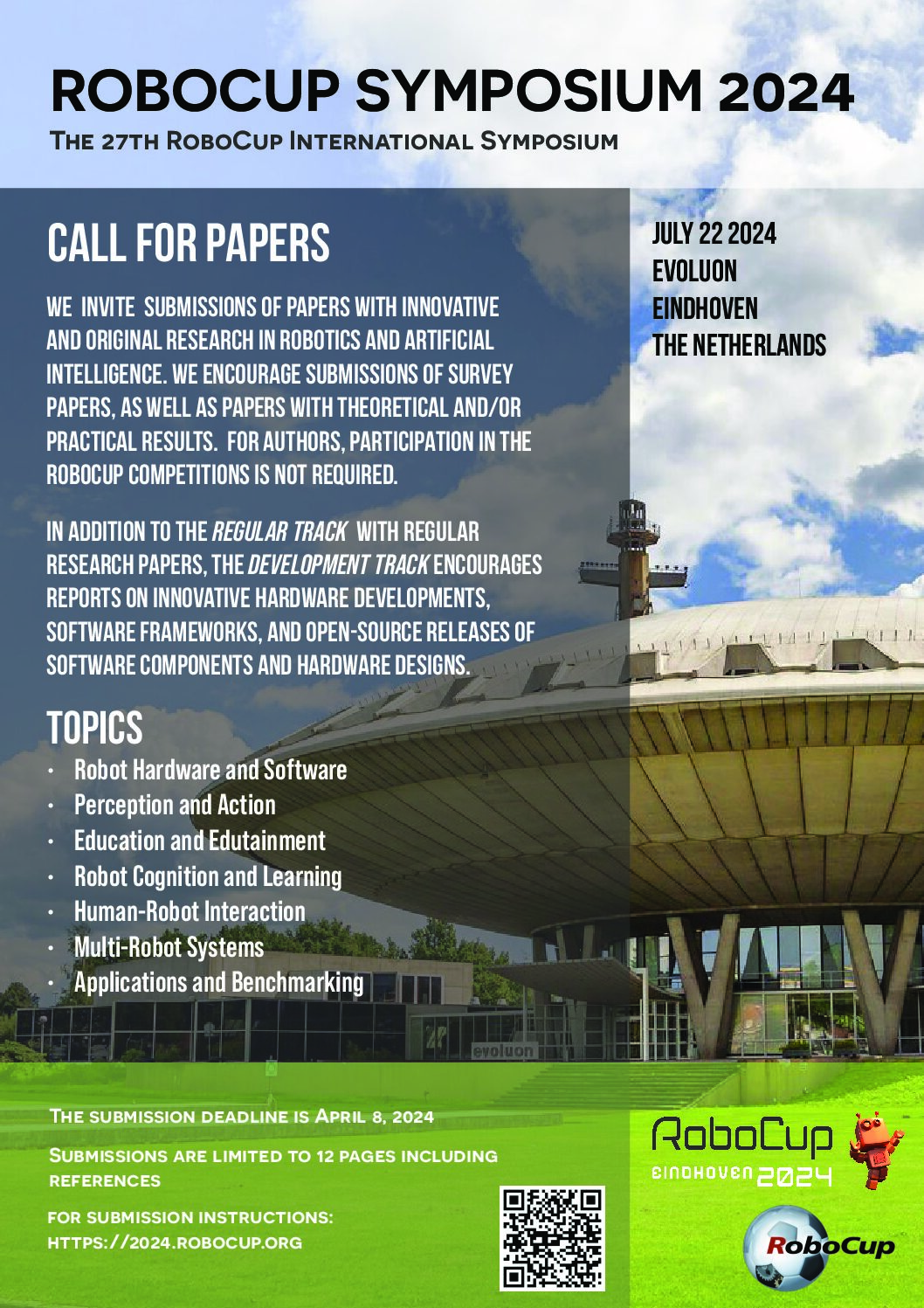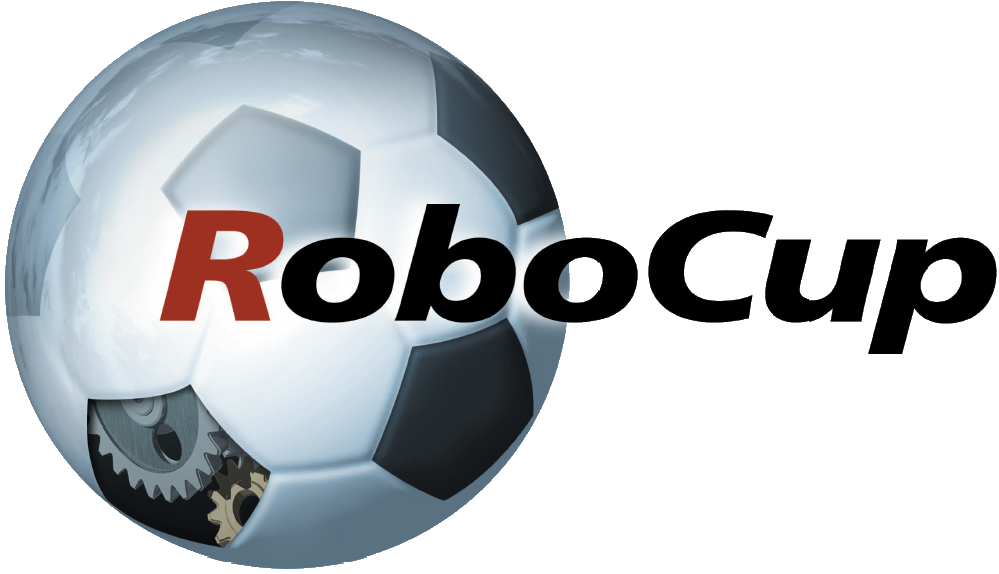We are looking for submissions of papers reporting innovative and original research with relevance to areas of robotics and artificial intelligence. A full list of topics welcomed to this year’s symposium can be found below. Within the described scope of topics, we also encourage submissions of high-quality overview articles, papers describing real-world research, and papers reporting theoretical results. Researchers are invited to submit their work independently of whether they participate in the RoboCup competitions or have a RoboCup team.
The symposium is to be held in person in Eindhoven, The Netherlands

In addition to the regular track with regular research papers, the development track encourages reports on innovative hardware developments, software frameworks, and open-source releases of software components. A review of papers describing these contributions will be based on technical aspects and benefits to the practice of communities specifically working in RoboCup.
The proceedings of the RoboCup International Symposium will be published and archived within the Lecture Notes in Artificial Intelligence (LNCS/LNAI) series by Springer after the conference. The LNCS/LNAI series has an impact factor of 0.407.
All papers will be peer-reviewed and evaluated by members of the senior program committee. The proceedings of the RoboCup International Symposium will be published and archived within the Lecture Notes in Artificial Intelligence (LNCS/LNAI) series by Springer-Verlag after the conference. Submissions are limited to 12 pages including references. Papers should be formatted following the LNAI author guidelines (https://www.springer.com/gp/computer-science/lncs/conference-proceedings-guidelines).
Please submit contributions using this link: https://equinocs.springernature.com/service/RoboCup2024
If you need an invitation letter for a visa application, please check this page: https://2024.robocup.org/early-visa-applications


